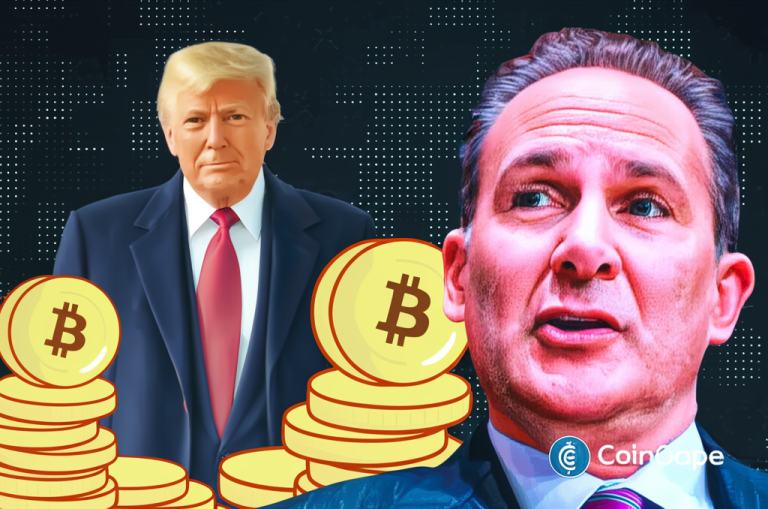Peter Schiff’s Critique of Trump’s Bitcoin Plan
Introduction
Peter Schiff, a renowned economist, has raised serious concerns about former U.S. President Donald Trump’s Bitcoin plan, particularly in the context of America’s significant trade deficit. Schiff argues that Trump’s tariff policies are at odds with his goal of making the U.S. a Bitcoin superpower. As the U.S. invests more in Bitcoin, it becomes increasingly reliant on other countries to meet its goods demand, exacerbating the trade deficit. This perspective has sparked a broader discussion on the role of Bitcoin in economic strategy.
The Contradiction Between Trump’s Bitcoin Plan and Tariff Policies
Trump’s Bitcoin initiative aims to establish the U.S. as a leading Bitcoin nation, but this goal conflicts with his efforts to address the trade deficit. Schiff contends that increased U.S. investment in Bitcoin will divert resources from the real economy to the digital currency sector, making the country more dependent on imported goods and worsening the trade imbalance. The contradiction lies in the fact that Trump’s tariff policies are designed to reduce imports and boost domestic production, while the Bitcoin plan could achieve the opposite.
Impact of Tariff Policies
Trump’s tariff policies are primarily intended to reduce the U.S. trade deficit by raising the cost of imported goods to encourage domestic production. However, these policies can lead to higher consumer prices, slower economic growth, and even trade wars. Schiff believes that these measures not only fail to address the trade deficit but could also lead to economic recession or inflation.
Resource Allocation Issues in the Bitcoin Plan
The Bitcoin plan requires substantial investment in technology, talent, and capital. Schiff argues that these resources could have been used to enhance U.S. productivity and competitiveness but are now being diverted to the Bitcoin market. He believes that this allocation of resources not only fails to generate real economic growth but also increases U.S. dependence on foreign goods.
The Role of Bitcoin in Economic Strategy
Bitcoin, as a digital currency, is highly volatile and lacks tangible backing. Schiff has long been a critic of Bitcoin, arguing that it lacks the stability and security of traditional currencies. The role of Bitcoin in economic strategy remains contentious. While some view Bitcoin as a means to create new digital value, Schiff sees it as merely transferring value between buyers and sellers without generating substantial wealth.
Comparing Bitcoin with Traditional Assets
Compared to traditional assets like gold, Bitcoin’s price volatility is significantly higher. Schiff argues that during economic uncertainty, gold is a safer investment option. He notes that U.S. investments in the Bitcoin market have already resulted in a 12% loss, whereas investing in gold could have yielded a 2% return. This comparison highlights the risks associated with Bitcoin in economic strategy.
Conclusion
Final Thoughts
Peter Schiff’s critique of Trump’s Bitcoin plan highlights the contradictions and risks in economic strategy. Increased U.S. investment in Bitcoin could exacerbate the trade deficit, and the effectiveness of tariff policies is questionable. In economic strategy, traditional assets like gold may offer greater stability and security. Therefore, the U.S. needs to reassess its economic strategies to find more effective solutions to address the trade deficit and economic uncertainty.
資料來源:
[1] coingape.com
[2] www.benzinga.com
[4] www.ainvest.com
[5] www.benzinga.com
Powered By YOHO AI





